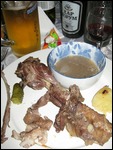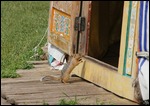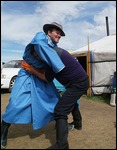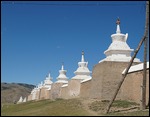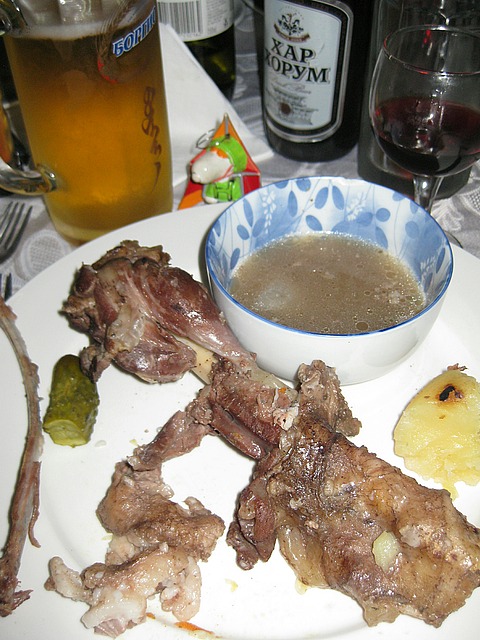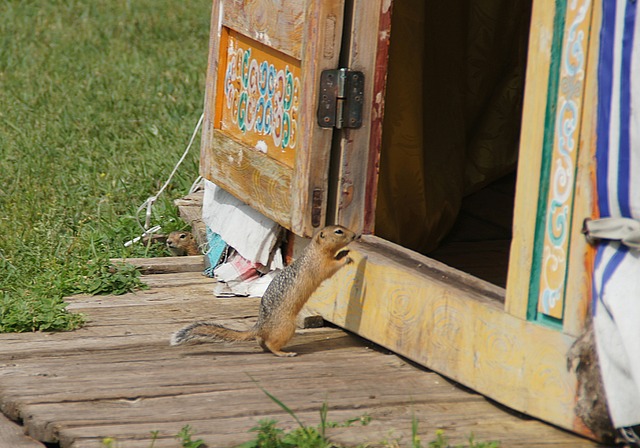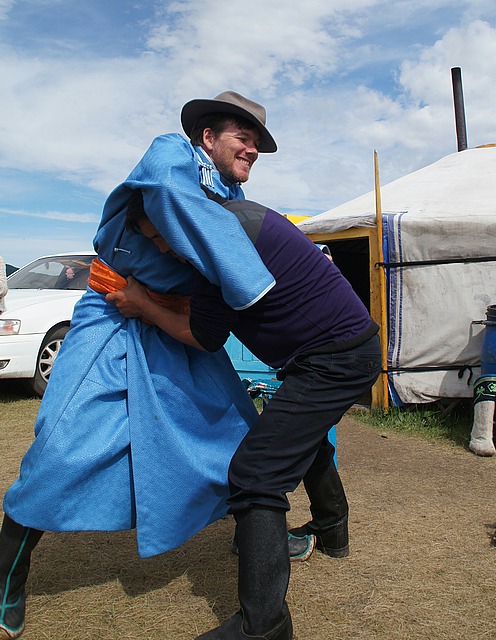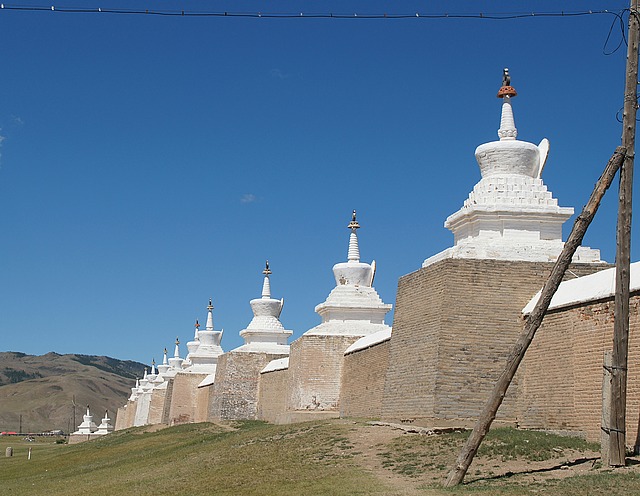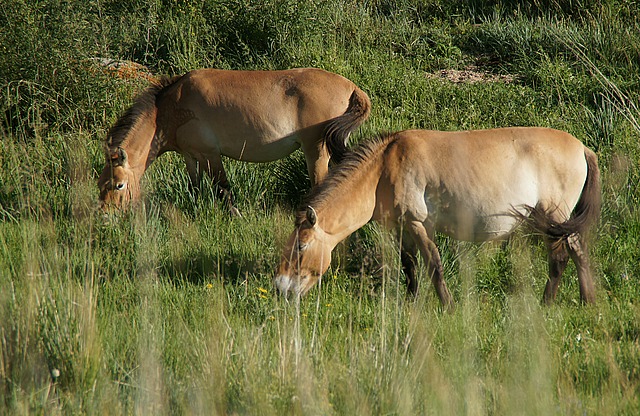The itinerary on overland tours is sometimes, if not ofttimes, a vision rather than a secured schedule. We had lost lots of time on our many unfortunate encounters with nature and lack of infrastructure, and even though the rain had kept to itself, thus leaving the trails reasonably mudfree, the unevenness and the potholes remained. One too many bumps turned out to be the metaphorical straw that broke the metaphoricaller camel's back; Archie the truck had now broken the front right set of springs completely, three layers of 12 mm steel snapped right off.
Sunset was approaching, and even though the GPS informed us of a measly 14 km, as the crow flies, to our intended ger camp, it looked like yet another bushcamp. Slow and steady may not win the race, but it might finish it, and as the sun vanished beneath the grassy hills, with coughing and rattling and all sorts of sounds, symptomatic of a not entirely healthy truck, the Orange Overlander against all odds came to a halt outside the ger camp of Tshenker Hot Springs.
The next couple of days were filled with activities of differing grades of relaxation. Obviously, as the name suggest, there were hot pools to soak in. Pool on a snooker table for the more physical, and another ping-pong table for the even more eager to sweat. This time I got my revenge on Mungoo, and beat him in straight sets.
I also had time to fix my sleeping mat and was looking forward to testing it on the next bush camp, but alas; Archie was now beyond what repair can be done in the wild, and as such, the truck and its passenger had to go separate ways. On our new transport there was no room for any camping equipment, and from now on, it was ger camps and no cooking for the whole enchilada.
Surrounded by lush green hills, patches of forest and common but not devastatingly so rainfalls, the area around Tshenker hot springs provide ample conditions for wildlife and farming alike. Kites, buzzards and other birds of prey circled the skies, a gazillion ground squirrels skipped around just about everywhere and wolves could be heard howling in the night. Sheep, horses and cows roamed the fields, and a trip to a nearby family showed us, again, the famous Mongolian hospitality. After having the vodka curd and the mare's milk, I got to try on a traditional deel, and just as I was posing for the pictures, the man of the family surprised me with a bit of Mongolian wrestling. Of course, in Mongolia they just call it wrestling.
Perhaps it was the wolfpack that got him. Perhaps it was the Mongolian hospitality that made him want to stay. Perhaps the ever so cute barmaid, who had been giving me shy smiles and stolen glances since day one, had taken care of him as a way to remember me by. Whatever the reason, since that day in the hotsprings, my canine co-traveller, my hound helper, my muttly mascot has not been seen. Snoopy is MIA, and we might never see him again, sneakily posing among exotic food and drink, jestingly obstructing the view of amazing city- and landscape panoramas or cleverly peeking out of hidden crevasses. Fare thee well! And I shall never give up hope of seeing you again!
Whatever caused Snoopy to go AWOL, it probably wasn't the same thing that had hit 75% of the passengers. We had already ruled out the whole sheep, stewed with veggies and fireheated rocks in an old milk pot, as the culprit, seeing that even the vegetarians had it. But as the bus set forth north, it was seldom the need for bush-pees that made the crowd call out for stop. All and sundry's stomachs had turned on them, one by one falling out of the race, Final Destination style, and the only ones reasonably fit were those who had been sick earlier on the tour, myself included.
Nevertheless, leaving Tshenker behind us and heading to Ogii Lake, we stopped at the old capitol of Kharkhorin and its Erden Zuu, the first buddhist monastery in Mongolia. The lake provided this trips first proper swim, and also a nice change from all the mutton we've been eating: Time for some fish!
With the end of the trip growing ever closer, most, if not all, compadres were back on their feet in order to experience the wonder of our last stop before heading back to UB: Khustain National Park.
There were at one point, some thirty years ago, zero Przewalskys horses left in the wild. That's the wild horse that all modern domestic horses descend from, and it has only survived in captivity until recently. Known as takhi in its native Mongolia, it has been reintroduced into the wild in Khustain national park, and now there are roughly 270 equines running wild in the world. The chances of seeing one were slim, but by the watering hole some hour's march into the park had been the sight of a few examples the last couple of days, so on we went. And lo and behold: No less than four adults and a fawl was there, and silently filling our memory cards we regarded the rare specimen. But that wasn't enough. Up on the hillside five more horses could be seen, and indeed, if not 12-14 more were coming over the ridge far off. Almost ten percent of the world's Przewalsky population were there for us to behold.
The loop was coming to an end, and with lots of moments, memories and muttondinners we set course back to Ulaanbaator. Or, you know, UB, as us more or less locals call it.
